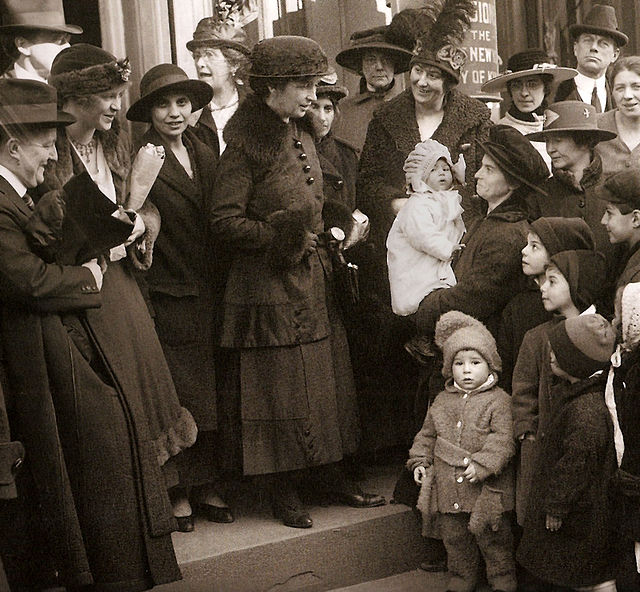Birth control movement in the United States
The birth control movement in the United States was a social reform campaign beginning in 1914 that aimed to increase the availability of contraception in the U.S. through education and legalization. The movement began in 1914 when a group of political radicals in New York City, led by Emma Goldman, Mary Dennett, and Margaret Sanger, became concerned about the hardships that childbirth and self-induced abortions brought to low-income women. Since contraception was considered to be obscene at the time, the activists targeted the Comstock laws, which prohibited distribution of any "obscene, lewd, and/or lascivious" materials through the mail. Hoping to provoke a favorable legal decision, Sanger deliberately broke the law by distributing The Woman Rebel, a newsletter containing a discussion of contraception. In 1916, Sanger opened the first birth control clinic in the United States, but the clinic was immediately shut down by police, and Sanger was sentenced to 30 days in jail.

Margaret Sanger, a birth control activist, her sister, Ethel Byrne, and Fania Mindell, leaving a courthouse in Brooklyn, New York, on 8 January 1917, during a trial for opening a birth control clinic
Robert Dale Owen wrote the first book on birth control published in the U.S.
Anthony Comstock was responsible for many anti-contraception laws in the U.S.
Margaret Sanger was a leader of the birth control movement.
Mary Coffin Ware Dennett was an American women's rights activist, pacifist, homeopathic advocate, and pioneer in the areas of birth control, sex education, and women's suffrage. She co-founded the National Birth Control League in 1915 together with Jessie Ashley and Clara Gruening Stillman. She founded the Voluntary Parenthood League, served in the National American Women's Suffrage Association, co-founded the Twilight Sleep Association, and wrote a famous pamphlet on sex education and birth control. A famous legal case against her eventually became the catalyst for overturning the Comstock laws.
Mary Ware Dennett, ca. 1892–1896. Courtesy of Schlesinger Library





